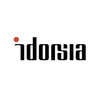
Long Term Safety and Efficacy Trial of Beclomethasone Dipropionate - Hydrofluoroalkane (BDP-HFA)...
RhinitisAllergic1 moreSubjects with perennial allergic rhinitis will be randomized to 320 mcg of beclomethasone dipropionate (BDP) using a hydrofluoroalkane (HFA) propellant or placebo as a nasal aerosol. The subjects will be followed for safety and efficacy for a period of 30 or 52 weeks. BDP HFA is a steroid which is currently FDA approved for the treatment of asthma. BDP-HFA should be safe and effective as a "dry" nasal aerosol which may be preferred by some patients.

Montelukast in Seasonal Allergic Rhinitis: Fall 2001 Study (0476-240)
Seasonal Allergic RhinitisThis is a study to evaluate the treatment effect of montelukast 10 mg taken in the morning, versus placebo, in patients with seasonal allergic rhinitis. Loratadine is included in the study as an active control.

Efficacy & Safety of Loratadine-Betamethasone Oral Solution for Treatment of Severe Perennial Allergic...
RhinitisThis study attempts to document the therapeutic value of combining loratadine antihistamine action (no sedative) with anti-inflammatory effects of betamethasone at low doses, which may facilitate treatment adherence by patients whereas providing an effective and rapid perennial allergic rhinitis (PAR) symptoms relief.

A Dose-Ranging Study of the Safety and Effectiveness of MK-8237 in the Treatment of House Dust Mite...
RhinitisAllergic4 moreThe purpose of this study is to evaluate the dose-related effectiveness, the safety and the tolerability of MK-8237, compared to placebo, in the treatment of house dust mite (HDM)-induced allergic rhinitis/rhinoconjunctivitis in adults. The primary hypothesis is that administration of MK-8237, compared to placebo, results in dose-related improvement in the average total nasal symptom score (TNSS) determined during environmental exposure chamber (EEC) challenge.

Study of ACT-129968 in Adult Patients With Seasonal Allergic Rhinitis
Seasonal Allergic RhinitisThis study will assess the efficacy and safety of different doses of ACT-129968 in adult patients with seasonal allergic rhinitis, due to mountain cedar pollen.

Single Rising Dose (SRD), Multiple Rising Dose (MRD) Study of BI 671800 in Healthy Asian Volunteers...
AsthmaRhinitis2 moreThe primary objective of the current study is to investigate the safety and tolerability of BI 671800 HEA in healthy Chinese male volunteers following single oral administration, and healthy Japanese male volunteers following single oral administration and multiple administrations.

Efficacy of Buffered Hypertonic Saline(BHS)Nasal Irrigation in Allergic Rhinitis (AR) Children
Allergic RhinitisThe purpose of this study is to investigate whether buffered hypertonic saline (BHS) is superior to normal saline (NSS) for improving mucociliary function and relief nasal symptoms in children with allergic rhinitis.

A Study Of The Effects Of OC000459 In Subjects Known To Suffer From Grass Pollen Induced Allergic...
Allergic RhinitisThe study will assess the efficacy of OC000459 200 mg twice daily orally in comparison to placebo when subjects are challenged in the Vienna Challenge Chamber for 6 hours. This is a randomised, double blind, placebo controlled, two way crossover evaluation. There will be a screening period of up to three weeks and a washout period of at least one week between the two treatment periods. There will be a follow up one to three weeks after the last dose of study drug.

SB705498 Proof of Concept Chamber Challenge in Subjects With Non Allergic Rhinitis
RhinitisThe purpose of this study is to assess the pharmacodynamic (PD) effects (Total Symptom Score (TSS) and its individual components: rhinorrhoea, nasal congestion, post-nasal drip) of intranasal, repeat dose SB-705498 in non-allergic rhinitis (NAR) patients elicited by a cold dry air challenge in an environmental exposure chamber (EEC). SB-705498 is a selective antagonist of the transient receptor potential vanilloid-1 (TRPV1) ligand gated ion channel. TRPV1 is a cation permeable ion channel that can be activated by several physiological factors, such as heat, protons (pH), osmotic stress, eicosanoid derivatives, anandamide, and by products of inflammation, such as histamine, prostaglandins and bradykinin. In the nose, the local TRPV1 expressing sensory C-fibres are thought to play a key role in the development of nasal hyper-responsiveness to environmental provocateurs. It has been proposed that blocking the nasal sensory nerve stimulation may control nasal hyper-responsiveness and therefore prevent the induction of rhinitis symptoms. In this context, preclinical evidence supports that targeting TRPV1 by SB-705498 may be an attractive option. In this study NAR patients will be randomised, in a double blind, placebo controlled cross over design to receive 14 day repeat doses of 12mg intra-nasal SB-705498 once daily. Whilst dosing at home, subjects will record symptom scores to document their symptoms. In addition, during visits to the clinical unit, acoustic rhinometry, quality of life questionnaires and safety assessments will be monitored.

Fexofenadine HCL - Pseudoephedrine HCL Combination Versus Allegra in Patients With Seasonal Allergic...
Rhinitis SeasonalPrimary Objective: - To evaluate the efficacy on the nasal congestion of a twice-daily fexofenadine HCl 60 mg - pseudoephedrine HCl 60 mg combination (FEX60/PSE60) and fexofenadine HCl 60 mg - pseudoephedrine HCl 120 mg combination (FEX60/PSE120) versus fexofenadine HCl 60 mg (FEX60) in patients with seasonal allergic rhinitis (SAR). Secondary Objectives: To evaluate the efficacy of a twice-daily FEX60/PSE60 and FEX60/PSE120 versus FEX60 on nasal symptoms (sneezing, rhinorrhea, and nasal congestion), eye symptom, and daily activity impairment. To assess the safety of a twice-daily FEX60/PSE60 and FEX60/PSE120 versus FEX60.
